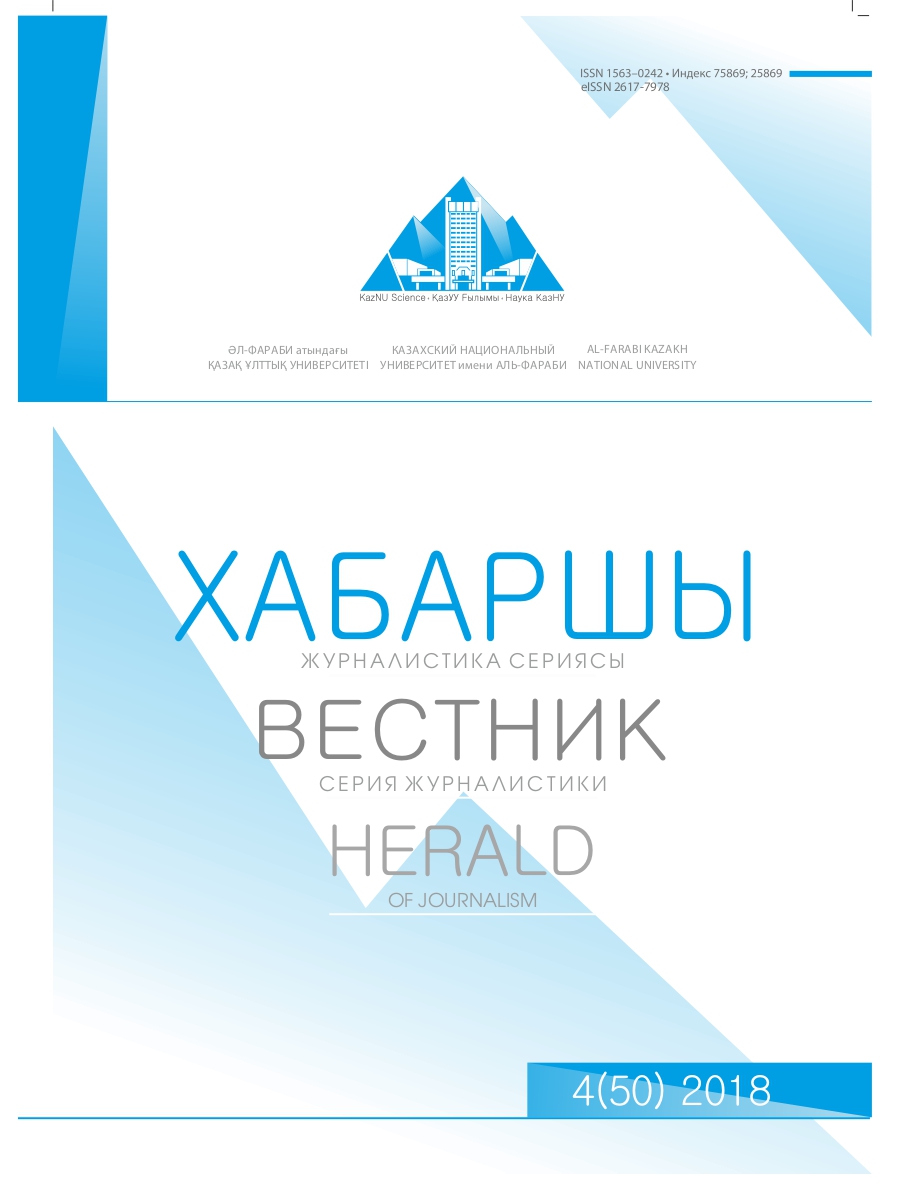FACT CHECKING – AS THE COMPETENCE OF THE MEDIA LITERACY OF A MODERN JOURNALIST
Keywords:
fake, fact-check, democracy, range, competence, convergence in the media industry, media literacy, drone-journalism, media hygiene, discrimination, infographic.Abstract
The article talks about fact checking as the competence of media information literacy, which a modern journalist should possess. The specifics of fact- checking are analyzed, its place in the system of media and information literacy is determined. Indicates the methods of cash check used by journalists. We need to know that the main purpose of the work is the fact of checking is to educate the critical thinking of the audience against the background of the so-called era of half-truth, when logic, accuracy is not a priority. Emotions, fakes and manipulations begin to rule the information field. Populism, manipulation, unreliability – should be the main objects of this study. The article says how long ago we started the work of the fact of checking, although we all know well that European countries much earlier took up checking false information. The activity of the resource, aimed at countering inaccurate and fake information, manipulation of public opinion, falsification of data and biased resources, will allow our readers to receive only verified factual material from reliable open sources, and public persons will give an incentive to be more careful about their statements. This article also provides accurate recommendations for journalists who want to do validating information.
References
Amazeen, Michelle A. (2 January 2015), «Revisiting the Epistemology of Fact-Checking», Critical Review (aнгл.)русск. Т. 27
(1): 1–22, ISSN 0891-3811, doi:10.1080/08913811.2014.993890
Amazeen, Michelle A. (1 October 2016), «Checking the Fact-Checkers in 2008
Beinenson V.A. Validation of information in the new media: problems and opportunities. In the collection: Journalism in the system of alternative sources of information Collection of materials of the scientific conference of the department of journalism. 2017. pp. 79-89.
«Fact-Checking Polarized Politics: Does The Fact-Check Industry Provide Consistent Guidance on Disputed Realities?», The Forum (aнгл.) Т. 13: 577. 27 september 2016.
Fridkin, Kim; Kenney, Patrick J. & Wintersieck, Amanda (2 January 2015), «Liar, Liar, Pants on Fire: How Fact-Checking Influences Citizens’ Reactions to Negative Advertising», Political Communication Т. 32 (1): 127–151, ISSN 1058-4609, doi:10.10 80/10584609.2014.914613
Gottfried J., Shearer E. News Use Across Social Media Platforms 2016 // Pew Research Center. 05/26/2016 (Electronic resource). Access mode:
https://factcheck.kz/glavnoe/faktcheking-v-kazaxstane-itogi-2017-goda/. Any use of materials is allowed only if there is a hyperlink to factcheck.kz.
http://www.journalism.org/2016/05/26/news-use-across-socialmediaplatforms-2016/ (access date: 01.11.2017).
https://factcheck.kz/glavnoe/startoval-pervyj-faktcheking-resurs-v-centralnoj-azii/.
Issers, OS Media fiction: between truth and mystification. Communicative research. 2014. No. 2. 115.
Kornev M. Faktcheking: 5 reliable ways to verify information. (Electronic resource). Access mode: http://mediatoolbox.ru/
factchecking/ (access date: 11/01/2017).
Lang, Carol. Media Literacy. / JSC IREX Moldova, 2015 / Tipogr.Foxfrot SRL
Layla Akhmetova, Aigul Niyazgulova, Dmitry Sholokhov. UNESCO office in Almaty, 2015.
L. Zalessky; under total ed. T.N. Dasayeva. 2017. 297s.
Marzak A.S. Current experience in developing indicators of media information literacy. Magazine “Media. Information. Communication ”No. 19 of 2016.
Marzak A.S. Media and information literacy in the context of media education: history and development prospects. Electronic scientific and practical journal «Youth Scientific Herald» №7 from 2017 (C 30-34).
Media and information literacy. The author team: Media and information literacy. Teacher training program. Edited by Flton Grizzle and Caroline Wilson. 2012
Morgan Marietta, David C. Barker, Todd Bowser (2015),
Nyhan, Brendan & Reifler, Jason (1 July 2015), «The Effect of Fact-Checking on Elites: A Field Experiment on U.S. State Legislators», American Journal of Political Science (aнгл.)русск. Т. 59 (3): 628–40, ISSN 1540-5907, doi:10.1111/ajps.12162 Predicting Political Ad Scrutiny and Assessing Consistency», Journal of Political MarketingТ. 15 (4): 433–464, ISSN 1537-7857, doi:10.1080/15377857.2014.959691













